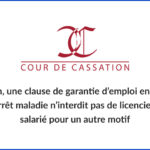By Philippe Jouvet, associated.
Selling at a loss, Shrinkflation…: Decryption of a rich semantic entry in competition and distribution law.
Inflation that has persisted for a year and a half and its impact on consumers has brought into the spotlight the practices of distribution and its suppliers that are little known to the general public.
We also know the interest of politics in seizing purchasing power issues.
In his back-to-school interview at the Parisian on September 16, the Prime Minister thus outlined new legislative avenues to authorize the “selling at a loss” of fuels and to combat the practice of shrinkflation.
Deciphering these two concepts which have strong implications in economic law.
Selling at a loss: Beware of abuse of language and abuse of dominant position!
The recent declaration by the Prime Minister on the possibility that would be granted to fuel distributors to “sell at a loss” allows us to return to this notion, the use of which is often overused.
First, it's important to distinguish selling at a loss from reselling at a loss. The law (and in particular article L.442-2 of the Commercial Code) provides that: “The fact, for any trader, to resell or announce the resale of a product as is at a price lower than its actual purchase price is punishable by a fine of 75 euros. »
It is therefore resale and not selling at a loss which is prohibited or at least strongly regulated by the legislator. Exceptions to the ban (such as sale products) are already listed in article L.442-4 of the Commercial Code.
It is therefore perfectly legal to sell at a loss as long as we respect the broader framework of competition law, which prohibits the abuse of a dominant position implemented by companies practicing predatory pricing.
Predation or sacrifice on its short-term margin in order to eliminate its competitors in the medium and long term.
Second, the practice of reselling at a loss fundamentally depends on the legal definition of the resale at a loss (“SRP”) threshold. which is given by the Commercial Code through the notion of “effective purchase price”: this is the net unit price appearing on the purchase invoice, reduced by the amount of all other financial advantages granted by the seller expressed as a percentage of the net unit price of the product and increased by turnover taxes, specific taxes relating to this resale and the price of transport.
The legislator happily plays with the resale threshold, imposing for example from 2018 with the EGALIM Law in the food sector a “ PRS + 10 » which has recently been strongly criticized as being procyclical during periods of high inflation.
This same legislator will still have to show ingenuity to create a specific regime for the resale of fuel at a loss while compensating independent distributors who will be the big losers in a price war on fuel.
Shrinkflation: Regulation by actors to the point of denigration?
The practice of shrinkflation consists, for a manufacturer, of reducing the volume of the product without lowering the price. Why adopt this strategy in the event of inflation? Economic data shows that consumers are less likely to switch away from a product when volume is reduced than when price increases[1].
Practice considered by many to be immoral but difficult to qualify as illegal. There is no deception of the consumer as long as the manufacturer complies with the rules of labeling on the product package and display on the shelves (in particular the unit price or the price per kilo). The announcement of upcoming legislative proposals (taken up heartily by the Prime Minister in her aforementioned interview) which would aim to make reduflation a deceptive commercial practice per se, leaves one doubtful.
Regulation by the actors themselves (consumer association, distributors) already implemented in the departments of large and medium-sized supermarkets (GMS) seems much more effective to us. It is a real policy of name and shame which is implemented with the aim of informing the consumer. But be careful not to exceed the limits of the law here too!
The denunciation of certain major brands practicing reflation by distributors (who are also competitors through private label products) could be the subject of a denigration action, on the basis of unfair competition. Attacking a competitor's business methods and infringing its brand can effectively give rise to a right to compensation, if fault, damage and a causal link between one and the other is demonstrated before the judge. Unlike defamation, the wrongful behavior is qualified even if the defendant provides proof of the accuracy of the facts revealed.
It remains to be seen whether the actors who are also often partners have an interest in taking the step of legal action.
[1] The Conversation, April 24, 2022, Why getting less with shrinkflation is preferable to paying more, https://theconversation.com/why-getting-less-with-shrinkflation-is-preferableto-paying-more-181326 cited in the Competition and Inflation Report published by the OECD in November 2022.

Philippe Jouvet
Partner
A lawyer specializing in competition, distribution and consumer law, philippe jouvet is an expert in the agricultural and agri-food sector.
Before joining Ginestié Magellan Paley-Vincent as a partner, Philippe Jouvet was Legal Manager for competition, distribution and consumption within the TEREOS cooperative, where he implemented the system provided for by the EGALIM Law.





